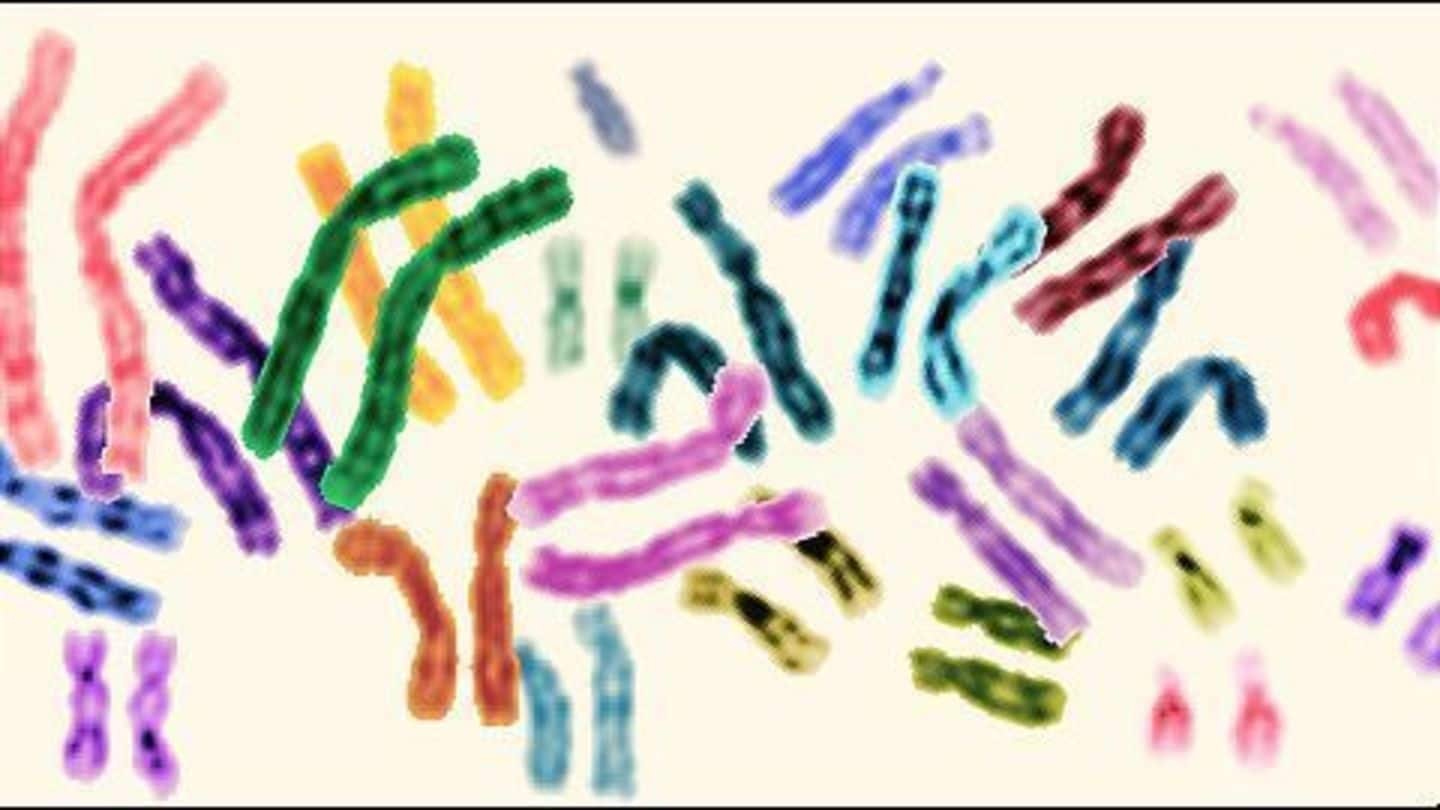
MedGenome to create Indian genome database
What's the story
The Sequoia backed MedGenome, based in Bengaluru, tied up with a southeast Asian consortium, which has committed to 'GenomeAsia 100k', which involves sequencing 1,00,000 Asian genomes. MedGenome aims to create a large database of at least 30,000 Indian genomes. The project helps in understanding the broad genetic variety of Indian ethnic groups and develop medications for several diseases and identify genetic aberrations.
Personal
What is a human genome?
The complete DNA set of an organism is called 'genome'. It comprises of all the information necessary to build and maintain an organism. A human genome contains 23 pairs of chromosomes with a total of about 3 billion DNA units.
15 Apr 2003
First human genome sequenced
Heads of a public consortium had announced that the 'Human Genome Project' was completed two years earlier than expected. The scientific venture had begun in October 1990 and was reportedly expected to be completed in a period of 15 years. Dr. Watson, director of the 'Human Genome Project', stated that some diseases could be treatable after understanding the human genome for health and illness.
Gaps Bridged
Closing the gaps in sequencing fragments
In 2010, a working draft of the human genome sequence was announced during a White House ceremony. The draft, which was only 85% complete, contained thousands of short DNA segments, whose order and orientation was unknown. In a span of three years, the International Consortium of Genome Sequencing Centers had put all the sequencing fragments in order and bridged most of the gaps.
Personal
Human Genome Project data posted for free
The Human Genome Project had produced highly accurate and extensive sequence of 3.1 billion DNA units of the human genome. It was announced that the data would be posted for free on genetic data banks.
India Neglected
Indian population neglected in other genome sequencing projects
In 2014, the United Kingdom had announced a project to create a database of 1,00,000 genomes. Another project called '1000 Genomes' was announced to build a genome database by collecting gene samples from across the world to capture genetic variation. Mahesh Pratapneni, Executive Director-MedGenome, said that Indian population is greatly neglected in the above-stated projects despite being one-sixth of humanity.
Helpful Endeavour
Genome sequencing helpful in identifying and curing diseases
Experts say that though the gene-analysis is a bit expensive, it would enable researchers to access and compare vast databases. Several diseases like diabetes, cancer, cardiovascular diseases, etc. are linked to genetic malfunctions. Sequencing helps in identifying the causes of those diseases by comparing genes of several population groups and understanding those genetic variations. Thus, genome sequence studies assist in treating untreatable diseases too.
Phases
GenomeAsia 100k to be completed by 2020
Since 2003, when the human genome was first sequenced, several nations had announced initiatives to sequence genomes of their residents. 'GenomeAsia 100k' would be developed in phases initially consisting of 1000 genomes belonging to Indian and East Asian populations. The first phase is expected to be completed by 2016 and the entire database by 2020; MedGenome already has a database of 200 Indian genomes.
Huge Costs
GenomeAsia project's estimated cost $120 million
Reportedly, the 'GenomeAsia 100k' project would approximately cost $120 million; but, only half of the estimated cost has been firmed up. Singapore-based Nanyang Technological Institute and Seoul's genetic diagnostic company-Macrogen, are also among the project's key collaborators. Approximately 60 petabytes of data (about 30 trillion pages of text) are expected to be produced in the current study, which would be available publicly to researchers.
Quote
The only large population sequencing initiative
Sam Santhosh, Founder & CEO-MedGenome, stated: "This is the only large population sequencing initiative that is a consortium of for-profit companies and academia. Combining academic rigor with the aggressive timelines and execution focus of for-profit companies will ensure the success."